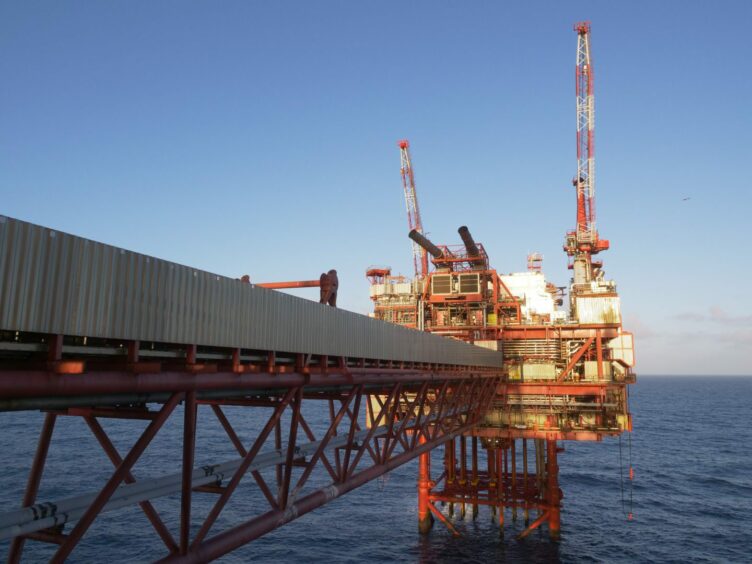
North Sea oil firms have sent a letter to chancellor Jeremy Hunt, calling the UK one of the most “fiscally unstable” places to do business in the world as another windfall tax threat looms.
In a letter seen by Energy Voice, the Brindex trade group, comprising more than 20 companies including big North Sea big-hitters like Harbour Energy, Ithaca Energy and NEO Energy, have written to Hunt that an increase in the levy would hit the “appetite and financial ability” to invest.
Chairman Robin Allan said: “The recently enacted UK Energy Profits Levy (EPL) and speculation about further fiscal changes have created huge uncertainty for independent oil and gas companies; our oil and gas projects are long term, with investment profiles often greater than 10 years.
“We need to be certain of the fiscal regime before we start to invest.”
‘Disastrous to this sector’
The chairman of Brindex (Association of British Independent Exploration Companies) went on to say that the EPL has created “long-lasting fiscal uncertainty and elevated the UK to one of the most fiscally unstable and complex regimes to do business in.
“Yet another change to the tax regime, in just a matter of months, would be disastrous to this sector.”
It comes as Jeremy Hunt is thought to be planning an extension to the windfall tax during the upcoming Autumn Budget, which would see another 5% increase and extend the “sunset” of the EPL from 2025 through to 2028.
Mr Allan echoed a recent sentiment from Harbour Energy; that a further tax could “undermine” its ability to invest in crucial emissions-busting tech like carbon capture and storage (CCS).
Government sources are reported as saying the UK faces a £50bn fiscal black hole which needs to be plugged in the upcoming budget on November 17.
The windfall tax in its current form – or Energy Profits Levy (EPL) – was introduced in May, with a 25% increase in the overall rate of tax to a total of 65%.
That came with a 91% investment incentive – returning 91 pence for every £1 spent – though commentators have pointed out that firms without a big pipeline of investment, like a big new oilfield like Rosebank, will not benefit.
Brindex does not include oil majors who can afford another levy, Mr Allan highlighted.
“Our members are not the supermajors who, with the help of their large trading operations, are reporting billions in worldwide profits, much of which is taxed outside the UK.
“Our members are being unfairly treated by the EPL which hurts us disproportionately more than the supermajors.”
Harbour Energy, with an extensive portfolio, is one such firm thought to be hit hardest – and its CEO Linda Cook has issued similar such warnings.
Mr Allan is a veteran of Premier Oil and latterly Harbour Energy, the largest-producing company in the North Sea.
In an interview with Sky News today, business secretary Grant Shapps hinted there could be a further raid on the “unexpected profits” of oil companies.
Brindex does not include any oil and gas majors like BP or Shell, who have in recent times been more open to further levies in light of their huge profits.


